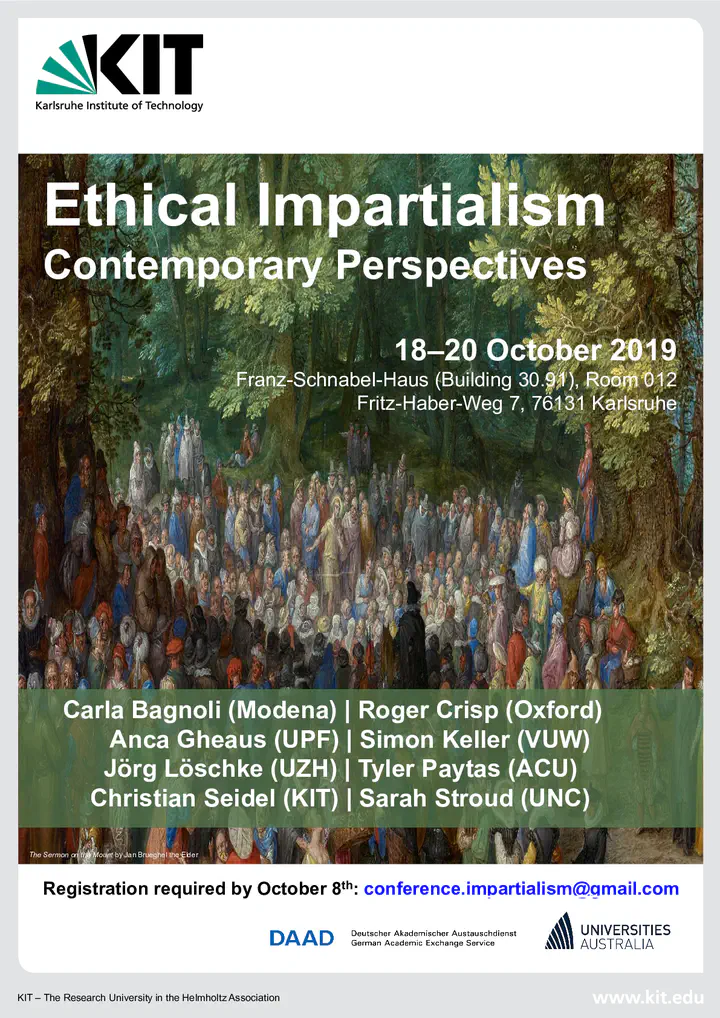Ethical Impartialism
Contemporary Perspectives

76131 Karlsruhe
It is often held that while we ought to give some consideration to the interests of everyone, including distant strangers, we are rationally justified in prioritizing ourselves and our loved ones. However, the idea that one ought to have equal basic concern for the interests of all has a surprisingly impressive pedigree. This view, sometimes called ethical impartialism, can be found in the teachings of the Buddhists and Stoics in the Ancient world, in Christian philosophy of the medieval period, and in modern moral theories such as Utilitarianism and Kantianism. Amidst the ongoing contemporary debate between proponents of impartialist ethical theories and those who defend partiality; this workshop aims at exploring the following questions:
- To what extent are partialist ethical theories committed to impartialist considerations?
- Is it possible to isolate the impartialist thread from the rest of paradigmatic impartialist theories like utilitarianism?
- What, if any, are the affinities between impartialist elements in alternative approaches, such as Utilitarianism and Kantian ethics?
- To which extent is it possible to account for typical partialist verdicts from an impartialist perspective?
Speakers:
- Carla Bagnoli (Modena)
- Roger Crisp (Oxford)
- Anca Gheaus (Pompeu Fabra Barcelona; joint work with Adam Swift)
- Simon Keller (Victoria University Wellington)
- Jörg Löschke (Zurich)
- Tyler Paytas (ACU Melbourne)
- Christian Seidel (KIT)
- Sarah Stroud (UNC-Chapel Hill)
The workshop is part of a collaboration on The Philosophical History of Ethical Impartialism funded by DAAD and Universities Australia.
Registration is free of charge, but places are limited. Please register before 8 Oct 2019.
Contact and registration: conference.impartialism@gmail.com
Organizers: Tyler Paytas (ACU Melbourne) & Christian Seidel (KIT)